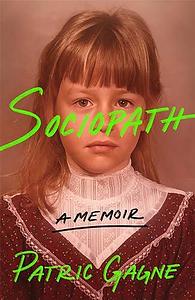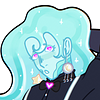Take a photo of a barcode or cover
informative
reflective
medium-paced
*Audiobook*
The first part was more engaging than the last third of the book. Overall a unique point of view for a memoir. I feel like reviews get upset this isn't a textbook providing information but if you go into it understanding it's a memoir it holds up.
A bit repetitive, this is actually more a coming of age story in the first half and a self acceptance story in the last.
The first part was more engaging than the last third of the book. Overall a unique point of view for a memoir. I feel like reviews get upset this isn't a textbook providing information but if you go into it understanding it's a memoir it holds up.
A bit repetitive, this is actually more a coming of age story in the first half and a self acceptance story in the last.
adventurous
challenging
dark
emotional
hopeful
informative
inspiring
reflective
fast-paced
informative
reflective
medium-paced
informative
reflective
medium-paced
An interesting look into the life of a person detached from their emotions.
I can't imagine how different my life would be if I shared her apathy. Fascinating.
I can't imagine how different my life would be if I shared her apathy. Fascinating.
dark
funny
reflective
medium-paced
I’m a millennial. I remember having a later bedtime than my younger sister and I would sneak past her room when she fell asleep so I could watch whatever Barbra Walters/ Keith Morrison program was on that evening. Fast forward a few decades and it’s no surprise I ended up working as a psych nurse working in a state psychiatric hospital.
I was quickly drawn to this memoir with its advertisement of seeing the world through a sociopath’s lens. Patric (Dr. Gagnon?) starts off taking the reader through her childhood and different life events; like moving from her childhood home after the separation of her parents.
I listened to the audiobook version, which she narrates herself, and I think that it added an extra layer that made the storytelling gripping and really pulled me in.
If you’re interested in abnormal psychology or find yourself consuming true crime and wondering about how people can do such horrible things, Patric breaks it down into a digestible nugget of information.
Now, I am not going to sit here and play armchair psychiatrist and spit out different DSM diagnoses and point my finger and call her a liar because I can’t verify every single thing she writes. SHE STARTS OFF THE MEMOIR BY SAYING WHAT AN UNRELIABLE NARRATOR SHE IS. “I’m a liar. I’m a thief. I’m emotionally shallow. I’m mostly immune to remorse and guilt. I’m highly manipulative. I don’t care what people think.”
Now, it is true that sociopath is not in the diagnostic manual, antisocial personality disorder is, and she does meet the diagnostic criteria for that (even by her own account). She admits to being deceitful, impulsive, and lacking remorse. These character traits along with a persistent disregard for, and violation of the rights of other since the age of 15, match the criteria for a diagnosis of ASPD.
However, when searching for articles she has written or published papers under her name, they are frustratingly absent from the internet. Does this make her a liar? Is the whole thing just going to turn out to be a big scandal like A Million Little Pieces? Who knows. She does give a disclaimer in the beginning.
“The story you are about to read is true. Though I did my best to present the information as accurately as I remembered it, some timelines have been condensed, some dialogue has been reconstructed, and some characters have been presented as composites. Certain names, dates, and details have been changed to protect the identities of the innocent (and the not so innocent).”
But also, what if she went by a false name and actually had published and researched all this information and it gets added to the next diagnostic manual? Time will tell. For now I’ll cautiously accept her version of things. One thing I do know, is that the John Lennon sunglasses stealing baby picture exists, as well as another one at a different angle that was provided by Patric’s family. I’d like to think it’s mostly true but with maybe a little bit of exaggeration and grandiosity.
I was quickly drawn to this memoir with its advertisement of seeing the world through a sociopath’s lens. Patric (Dr. Gagnon?) starts off taking the reader through her childhood and different life events; like moving from her childhood home after the separation of her parents.
I listened to the audiobook version, which she narrates herself, and I think that it added an extra layer that made the storytelling gripping and really pulled me in.
If you’re interested in abnormal psychology or find yourself consuming true crime and wondering about how people can do such horrible things, Patric breaks it down into a digestible nugget of information.
Now, I am not going to sit here and play armchair psychiatrist and spit out different DSM diagnoses and point my finger and call her a liar because I can’t verify every single thing she writes. SHE STARTS OFF THE MEMOIR BY SAYING WHAT AN UNRELIABLE NARRATOR SHE IS. “I’m a liar. I’m a thief. I’m emotionally shallow. I’m mostly immune to remorse and guilt. I’m highly manipulative. I don’t care what people think.”
Now, it is true that sociopath is not in the diagnostic manual, antisocial personality disorder is, and she does meet the diagnostic criteria for that (even by her own account). She admits to being deceitful, impulsive, and lacking remorse. These character traits along with a persistent disregard for, and violation of the rights of other since the age of 15, match the criteria for a diagnosis of ASPD.
However, when searching for articles she has written or published papers under her name, they are frustratingly absent from the internet. Does this make her a liar? Is the whole thing just going to turn out to be a big scandal like A Million Little Pieces? Who knows. She does give a disclaimer in the beginning.
“The story you are about to read is true. Though I did my best to present the information as accurately as I remembered it, some timelines have been condensed, some dialogue has been reconstructed, and some characters have been presented as composites. Certain names, dates, and details have been changed to protect the identities of the innocent (and the not so innocent).”
But also, what if she went by a false name and actually had published and researched all this information and it gets added to the next diagnostic manual? Time will tell. For now I’ll cautiously accept her version of things. One thing I do know, is that the John Lennon sunglasses stealing baby picture exists, as well as another one at a different angle that was provided by Patric’s family. I’d like to think it’s mostly true but with maybe a little bit of exaggeration and grandiosity.
challenging
dark
emotional
hopeful
inspiring
reflective
medium-paced
dark
funny
informative
inspiring
reflective
medium-paced
This book was both educational, inspiring, and surprisingly entertaining. I usually avoid nonfiction because I feel like it'll be dry, but Patric's narration is both enlightening and humorous.
My first introduction to sociopathy was through pop culture and reading "The Sociopath Next Door," so I cringed at myself when she called that book out specifically. Granted, I was around 12, and I grew out of it! It also pushed my interest in psychology. It took being in my early twenties to develop a better sense of psychopathology and abnormal psychology. That being, the difference between a way of thinking that's dysfunctional and functional, where being different isn't inherently wrong.
I think the oddest thing about this book is how relatable it is to me despite not having sociopathy. Instead, I experience multiplicity/plurality, where I share a body—and by extension a life—with other people. There are a lot of misconceptions about plurality due to misconceptions about DID, which also gets portrayed as dangerous and/or fascinating by fictional media and true crime. Those misconceptions encouraged me to be open about my plurality because I can do so safely (the same way I approached my being trans when I was younger).
At the same time, I still experience a lot of shame from being different. It's not fun knowing people will always see you as "crazy" or "untrustworthy" because of who you naturally are. It makes it hard to figure out if there's something truly wrong with you or if you're just being judged for not being normal.
However, there is immense satisfaction in people approaching you, saying they experience similar symptoms but didn't know what was happening, and feeling a sense of relief from isolation by the resources I give. Or when people are open to learning to become educated and helpful allies. That's when I know I'm making the right decision.
The downside of this book is that it's making me want to pursue academic psychology after years of trying to push that desire away. Whereas Patric had a good financial support system, I do not. And, well, when I'm not interested in being a therapist and just doing research, payment becomes a concern.
Regardless, this book excited me in furthering my research into stigmatized psychological experiences and how to help people who suffer from them, society's portrayal of them, or both!
My first introduction to sociopathy was through pop culture and reading "The Sociopath Next Door," so I cringed at myself when she called that book out specifically. Granted, I was around 12, and I grew out of it! It also pushed my interest in psychology. It took being in my early twenties to develop a better sense of psychopathology and abnormal psychology. That being, the difference between a way of thinking that's dysfunctional and functional, where being different isn't inherently wrong.
I think the oddest thing about this book is how relatable it is to me despite not having sociopathy. Instead, I experience multiplicity/plurality, where I share a body—and by extension a life—with other people. There are a lot of misconceptions about plurality due to misconceptions about DID, which also gets portrayed as dangerous and/or fascinating by fictional media and true crime. Those misconceptions encouraged me to be open about my plurality because I can do so safely (the same way I approached my being trans when I was younger).
At the same time, I still experience a lot of shame from being different. It's not fun knowing people will always see you as "crazy" or "untrustworthy" because of who you naturally are. It makes it hard to figure out if there's something truly wrong with you or if you're just being judged for not being normal.
However, there is immense satisfaction in people approaching you, saying they experience similar symptoms but didn't know what was happening, and feeling a sense of relief from isolation by the resources I give. Or when people are open to learning to become educated and helpful allies. That's when I know I'm making the right decision.
The downside of this book is that it's making me want to pursue academic psychology after years of trying to push that desire away. Whereas Patric had a good financial support system, I do not. And, well, when I'm not interested in being a therapist and just doing research, payment becomes a concern.
Regardless, this book excited me in furthering my research into stigmatized psychological experiences and how to help people who suffer from them, society's portrayal of them, or both!
Graphic: Animal cruelty, Mental illness, Stalking
Moderate: Toxic relationship, Violence
Minor: Suicidal thoughts, Suicide attempt, Pregnancy, Alcohol
challenging
tense
slow-paced
take a shot every time she says the word sociopath except the “shot” is I-wanna-put-down-this-book juice
challenging
dark
informative
reflective
slow-paced




